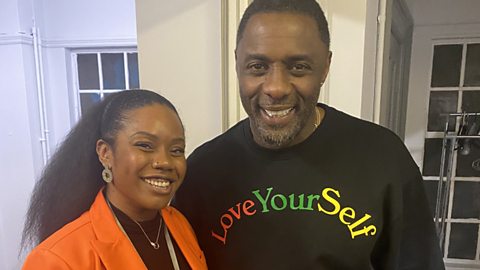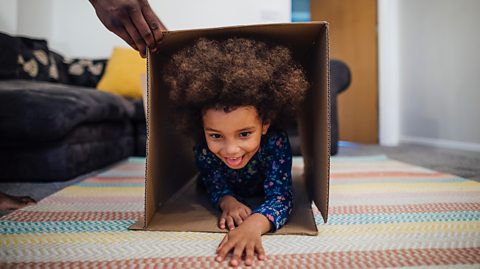It can be tough stepping out of your comfort zone. Even as adults, we may struggle to try something new that challenges us. That could be one of the reasons cricket legend Andrew “Freddie” Flintoff had his work cut out for him when assembling a cricket team of teenage lads from his hometown of Preston.
The three-part BBC One documentary series Freddie Flintoff’s Field of Dreams showed how the cricket star used his experience to open up the world of cricket and encourage young people to feel the same sense of camaraderie, joy and achievement that the game brought him during his career.
And while team sport and teamwork might not initially appeal to every child, or parent, there are lessons to learn from being part of a team.

Kyle Hogg, who played for Lancashire for 13 years, is the head coach of Freddie’s team and appears throughout the three episodes, not just giving tips on the game, but also offering advice to the players and bringing them in to line when things get too rowdy.
One of the main challenges for a man more used to playing alongside people who are as passionate about the game as he is, was motivating this group - some of whom had little interest in the game to begin with.
Kyle had to learn new ways to get his message across. He told Parents’ Toolkit: “Look at [the team’s] background, they’re used to confrontation. If people are used to arguing all the time, or shouting at someone, it’s pointless. There’s a few characters in there - when you speak calmly to them, listen to them, show you’re interested in them, you get a better response from them.”

Fail and fail again
In Kyle’s experience, it’s a fear of failure that can make people apprehensive about joining a team, especially when things can go wrong in front of their peers.
He explained: “It’s the unknown – [they’re thinking] ‘I don’t want to fail at something, If I fail, everyone’s going to see me’. We’re trying to coach them that, so what if you fail? Everyone fails. The best people in the world fail.
“You could speak to anyone at the top of their game, they'll have failed a million times, but the good thing is they kept going and that’s where we’re trying to get with the kids, - ‘so what if you get out first bowl, so what if you can’t bowl straight?’ - just keep going, keep having a smile on your face. We’ll keep helping and backing you. Before they knew it, they were turning up to training. Even when we finished the training sessions, they were hanging around and practicing. In the first session, that was never a thing, so that was where you build the confidence.
“That’s coaching in general, it’s people management. The best coaches in all walks of life, they get on the same level as the person they’re with. It’s showing you care, that’s the main part about it.”
Parental involvement
It’s usually welcome for parents to encourage their children as much as possible in any of their interests, sport included, but there are times when it can be useful to take a few steps back. This is especially true when it comes to the phenomenon known as ‘touchline parents’ - where advice, and even abuse, can be directed at referees and coaches from adults watching their kids in a game.
“That’s one of my massive bugbears in sport,” said Kyle. “Kids are under enough pressure as it is. They don’t need parents on the side, shouting, sometimes swearing, at the referees. Even though referees get a small fee, they’re still giving up their time.”
He added: “I get every parent wants their child to be the best, but the extra pressures at a young age, they don’t help the children themselves.
“Working in sport, it’s so hard. You could play any type of game, and someone is on social media talking about your performance and how you did, it’s so hard for children. It’s important for a parent to take a child to the game, but let the coach do the coaching. If you’ve got issues, speak to them away from everyone else. We get that every child wants to be the next Wayne Rooney or Ronaldo, but realistically there are very few children who are going to be at that level.
“There’s definitely something to be said for letting the child play and figure it out for themselves. You’re not going to have your parent there when you’re 18, going for a job interview. You’ve got to fail and you’ve got to learn why you failed. What can I do better? How can I get better? If you’re doing well, how do you keep doing well? These are all things that you need in life.”

Freddie reflects
Freddie, the man behind the project, agrees that the process of building the team went far beyond sport at times, but the skills the players learned did cross over into other parts of their lives.
He said: “Because [the boys] did something for the first time, something outside their comfort zone, with people they didn’t know, and had to walk through the doors of a different club, a lot of them took that into other areas of their lives.”
That included one player going for a job interview, and ultimately getting the job, while another of the teenagers has begun attending a vocational skills college in Preston.
Freddie continued: “That was the plan as well, it wasn’t just about cricket, it was about giving you the confidence from doing one thing to doing something else, knowing that people will have your back and people will support you. These are things that these lads haven’t had.
“It started off as many things [this project]. Cricket, at times, took a back seat while we looked at the other stuff.”
For more from Freddie read this article from BBC Sport - Andrew Flintoff: 'You've got to be lucky or privileged to play men's cricket'

What benefits can team sport offer your child?

Candice Lingam-Willgoss is a senior lecturer in sport and fitness at The Open University. We asked her about the developmental importance of team participation for young people - these are just some of the skills they may not realise they’re picking up on the sports field.
Focus. Quite often, particularly with children from lower socio-economic areas, they’ve never felt part of a group and they often lack structure. Being involved in a team sports environment gives that structure and enables them to work more cohesively. When you have more structure to your day and your planning, that actually builds confidence, you feel more in control of what you’re doing. It’s very transferable [into everyday life].

Confidence. When you enter a team sports environment, you’re placed in a situation where other people depend on you. I think having other people depend on you can build your confidence. You’re feeling valued, you’re feeling wanted, you all have a collective goal. A group that has a goal will work together and you will feel there is a confidence because everyone is supporting you and is with you.
Values. Sport also teaches children morals and values at a young age. About fair play, about being sporting, about how to work as a team, and about leadership. There are a number of these things that are key life skills that are really beneficial.
Relationships. It’s an essential skill to interact with different people from different backgrounds as school groups tend to be similar, but in sports clubs you will get people from different socio-economic groups, different races, different genders, for kids to learn from an early age to socially interact with people who don’t look or sound like them is very important. The confidence that can instil, if you’re young and you go for that first day of your new school or your first day in a new job, you know you can do it.
Candice has made this film for BBC Ideas - with tips for parents and carers about motivating your child and what approach to take - How to be a good sporting parent.

Organisations that might offer more information and support on how to access team sports:
The Youth Sport Trust aim to help every child enjoy the life-changing benefits of play and sport.
The This Girl Can campaign offers this activity finder with advice on how girls and women can access different sports and activities.
If you want to learn more about how your child can get into cricket:The England and Wales Cricket Board has this information.
Cricket Scotland has this Get Involved site.
In Northern Ireland there are summer development camps for budding cricketers.
BBC Sport have this Get Inspired collection with tips and information on how to get into different sports and activities.

Parents' Toolkit
Fun activities, real-life stories, wellbeing support and loads of helpful advice - we're here for you and your child.

How to support your child through difficult behaviours
Life coach Aisha, who supported the young candidates on Idris Elba's Fight School, explains how parents can avoid rows and start productive conversations.

Paddy & Christine McGuinness - Our Family and Autism: Advice for parents
Paddy and Christine McGuinness have 3 autistic children - their experiences may help parents who're looking for, or have received, an autism diagnosis for their child

Michael Mosley: Five tips for helping your kids sleep well
Dr Michael Mosley offers advice on improving health and concentration through better sleep habits. Here are his tips for parents to help their kids.

Five ways you can help boost your child’s confidence this summer
Educational psychologist Lee Randall has some tips to help you nurture your child’s confidence.

Fun games to help children with SEND get active at home
Ways for parents of children with special educational needs and disabilities to keep the family active.
